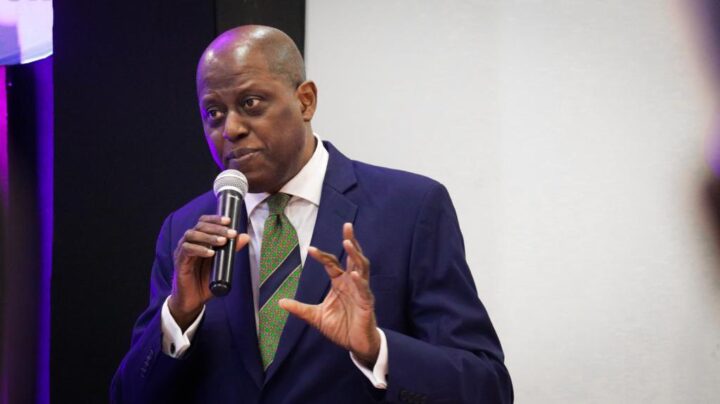All Nigerians share responsibility for stabilizing the naira, according to Mr. Yemi Cardoso, the governor of the Central Bank of Nigeria (CBN), who addressed members of the House of Representatives yesterday.
He addressed the parliamentarians in Abuja, providing them with an explanation of the problems pertaining to the foreign exchange that the country is currently facing.
Cardoso’s speech coincided with Minister of Finance and Coordinating Minister of the Economy Wale Edun’s declaration that the nation will face economic collapse by May 29, 2023, while simultaneously praising the economy for starting to show signs of life.
This is despite the fact that Zacch Adedeji, the Executive Chairman of the Federal Inland Revenue Service, or FIRS, has told Nigerians that the Federal Government does not intend to raise taxes in order to prevent placing further pressure on the people.
Meanwhile, renowned economist, Bismarck Rewane, has declared that the naira, is undergoing transition and not jinxed as being speculated in some quarters, noting that low foreign exchange inflow and lack of confidence in the local currency was responsible for naira’s free fall.
The CBN boss told the legislators that although the apex bank had the official mandate to ensure a stable value of the naira, the dwindling foreign exchange earnings by the nation and the increasing demand for foreign exchange by Nigerians for imports, school fees, foreign travel must be addressed to have a stable foreign exchange market.
His words: “Permit me to say that the exchange rate is determined by the dynamics of supply and demand for a product or service. In essence, similar to the pricing of cows or cars, the value of the US Dollar in Nigeria is determined by the balance of US Dollars entering the country and the demand for US Dollars among Nigerians.
“Applying this demand and supply principle, let’s examine how the exchange rate has performed in recent years. The exchange rate in Nigeria has increased/depreciated due to the simultaneous occurrence of two factors: a decline in the supply of US Dollars coinciding with a surge in the demand for US Dollars.’’.
Cardoso revealed that imports requiring dollars amounted to $16.65 billion in 1980 but noted that “by 2014, the annual import expenditure had significantly surged to $67.05 billion, although it gradually decreased to $54.71 billion as of last year.
“Similarly, food imports escalated from $2.63 billion in 1980 to $14.84 billion in 2019.”
The CBN governor, who noted that the number of Nigerian students abroad had grown astronomically, said: “In the 1980s and 1990s, the need for US Dollars for their living expenses was minimal. However, recent data shows a significant change.
“According to UNESCO’s Institute of Statistics, the number of Nigerian students abroad increased from less than 15,000 in 1998 to over 71,000 in 2015. By 2018, this figure had reached 96,702 students, as per the World Bank.
“Another report projects the number of Nigerian students studying abroad to exceed 100,000 by 2022.
“Continuing on the topic of the demand for US Dollars, Nigeria’s annual imports, which require dollars for payment, amounted to US$16.65 billion in 1980.
“From the aforementioned points, we can infer that the genuine issue impacting the exchange rate is the simultaneous decrease in the supply of, and increase in the demand for, US Dollars.
“It also seems that the task of stabilizing the exchange rate, while an official mandate of the CBN, would necessitate efforts beyond the bank itself and, indeed, to an attitudinal change of all our citizens.



